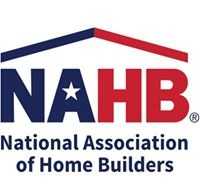WASHINGTON, D.C. – November 4, 2015 – (RealEstateRama) — The National Association of Home Builders (NAHB) today urged Congress to pass two bills that would help ease regulatory burdens and uncertainties facing home building firms and other small businesses.
Testifying before the House Judiciary Subcommittee on Regulatory Reform, Commercial and Antitrust Law, NAHB First Vice Chairman Ed Brady, a home builder from Bloomington, Ill., said that home building is one of the most highly regulated industries in America.
“On average, regulations imposed by government at all levels account for 25 percent of the cost of a new single-family home for sale,” said Brady. “The two bills before us today each represent significant progress toward restoring the public participation Congress intended for the regulatory rulemaking process and providing an adequate judicial check on unrestrained rulemaking agencies.”
The bills are meant strengthen the Administrative Procedures Act (APA), which was enacted by Congress in 1946 to establish a set of rules to restrain and govern the actions of federal regulators. The APA was designed to encourage public participation in the rulemaking process and establish meaningful judicial review of agency actions. However, rulemaking agencies under both Democratic and Republican administrations have increasingly skirted the basic tenets of the APA since the legislation was first passed.
H.R. 3438, the Require Evaluation Before Implementing Executive Wishlists Act of 2015, also known as the REVIEW Act, requires a stay of enforcement pending judicial review for high-cost rules that impose an annual cost to the economy of at least $1 billion.
“When dealing with costly regulations, it is simply unfair to require small businesses to make the financial investments to comply with new regulations while the rules are being reviewed by the courts,” said Brady. “The damage has already been done even if the courts throw out a flawed rule.”
Postponing implementation of regulations that impose a considerable financial burden while the rules are being reviewed by the courts represents a fair and balanced approach, Brady added.
Calling on the House to move quickly to advance the REVIEW Act, Brady noted there are number of regulations affecting the housing industry that are, or will be, before the courts, including the Environmental Protection Agency’s stricter new ozone standards and the Department of Labor’s proposed overtime regulation that could affect approximately 116,000 construction supervisors.
He also urged Congress to approve H.R. 2631, the Regulatory Predictability for Business Growth Act of 2015. The measure would ensure federal agencies will not have the power to significantly alter existing rules without discussion and input from the public.
In the past, regulatory agencies have utilized changes to interpretive rules as a loophole to avoid public notice of proposed rulemaking and comment requirements as stipulated in the APA.
“H.R. 3438 and H.R. 2631 would help to restore the intent of Congress when it passed the Administrative Procedures Act in 1946,” said Brady. “These bills would reduce the burdens poorly designed regulations place on small businesses while providing for more effective health and safety measures for workers and consumers.”







